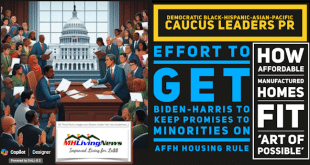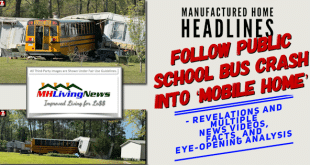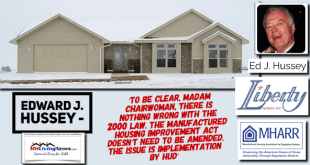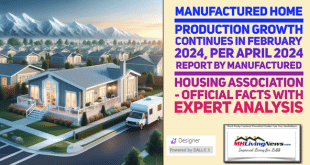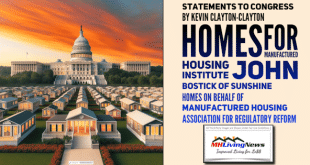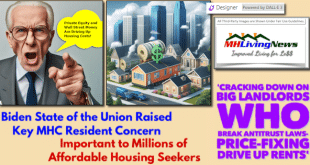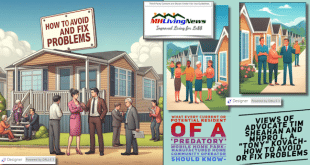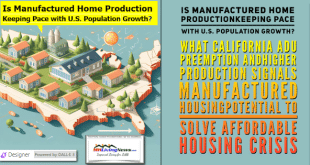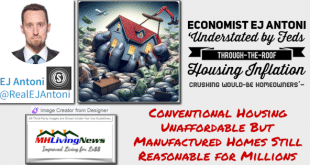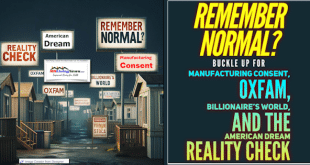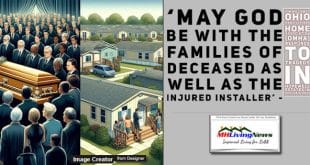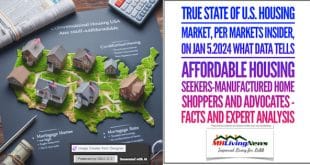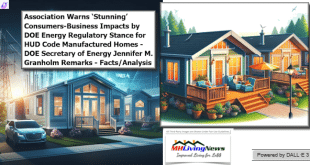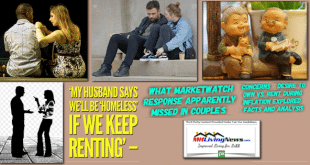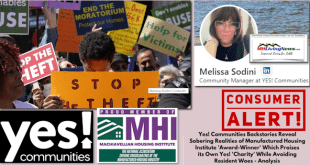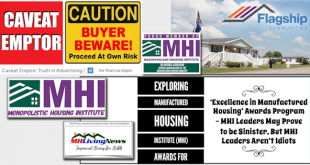Mobile home or manufactured home living provides affordable, quality housing for some 22 million Americans. While millions own both their manufactured home and the land the home is placed on, several million are placed on leased land. This article is focused issues that ought to be considered by those who own or are considering buying or leasing a home in a land-lease community. There are an estimated 45,000 such properties nationally, but the precise count is not known. When it comes to data regarding what some call “mobile home parks” – often more properly called a manufactured home community – there is “no national repository” of information on mobile/manufactured home land-lease communities, said Sun Communities Chairman and CEO Gary Shiffman in 2021. As the number of so-called “predatory” companies in the manufactured housing industry seemingly grow – and some hold Sun Communities and other higher-profile Manufactured Housing Institute (MHI) member brands in that category – legal questions arise. While this article should not be construed as legal advice, it will provide information provided by an attorney, a legal writer, and information from a U.S. Housing and Urban Development (HUD) approved certified housing counselors. For readers looking for more general introduction information about shopping for a manufactured home, click here, here, or see the report linked below.
As a disclosure, the information that follows was obtained from marketing/advertising sites, but MHLivingNews has not been compensated by any of those noted herein. Sharing their information should not be construed as an endorsement – if you are looking for an attorney, due diligence is advised. So why did MHLivingNews pick these items for this report? Frankly, because in our view they provided a good generic introduction to the issues described.
This report will have three separate items.
The first is from Richard Dahl, a Legal Writer for FindLaw, which is a information/marketing platform affiliated with Thomson Reuters. Dahl’s article is entitled “What Rights Do Mobile Home Park Tenants Have?”
The second is from a Maryland attorney that is part of what they indicate is an award-winning law firm. While laws obviously vary from state-to-state, the basics in their blog post seem to be general fit for those in dozens of states who are trying to get a handle on an issue they or someone they care about faces. The post by attorney Gerard F. Miles is entitled: CAN I BE EVICTED FROM MY MANUFACTURED HOME?”
The third is from a Florida-based housing counseling firm that states they are HUD certified. Numbers who face a legal issue may not be able to afford an attorney. Every state, and numbers of cities and towns, have such counseling services available.
Additional information, related reports and a brief MHLivingNews commentary and analysis will follow those three third-party items.
What Rights Do Mobile Home Park Tenants Have?
By Richard Dahl on July 08, 2021 12:33 PM
For millions of Americans, mobile homes provide an affordable form of residential ownership. But now a combination of threatening forces has placed many of them in highly precarious positions.
About 7% of American households are mobile homes – or manufactured homes, as they are more accurately called – and many of them exist together in “parks” where their owners rent the land. So they are homeowners and renters at the same time, an unusual category, and that’s where much of the problem lies.
Like renters, owners of manufactured homes may be required to move off rented land at any time. But unlike renters who are being evicted, an owner of a manufactured home facing eviction must either sell the home or move it to another site.
The problem is that, despite their names, mobile homes really are not actually very mobile. The costs of moving a mobile home typically fall in the $5,000 to $10,000 range, according to the National Consumer Law Center.
If the owner cannot afford to move it, the only good option may be to sell it. But during the coronavirus pandemic, at least, the market for manufactured homes in many parts of the country has dried up. If owners cannot find buyers, they have little recourse but to sell at fire-sale rates or just leave the home in the park. In many states, these homes are considered abandoned property after 30 days and the landlord can take over the titles and lease them to new tenants.
Lacking the Protection of Other Renters
A huge problem facing manufactured-home owners is that “in many states they are excluded from the basic legal protections that cover tenants in rented houses or apartments, such as mandatory notice periods for rent increases and evictions,” Sheela Kolhatkar wrote in a recent article in The New Yorker.
The vulnerability of residents in these communities may be part of the reason why large investment firms have been targeting mobile-home communities in the last 10 years or so, Kolhatkar wrote: “They see the parks as reliable sources of passive income – assets that generate steady returns and require little effort to maintain.”
In any event, stories of rent gouging and abrupt evictions are common in manufactured-home parks all across the nation.
In Fresno County, California, for instance, the lawyer for an organization that is representing mobile-home residents in a lawsuit against a new owner said a rent hike imposed on them amounted to a 72% cost-of-living increase over a two-year span.
Residents of Paradise Park Mobile Home Park in Miami received a six-month eviction notice during the heart of the pandemic last November, days after the park was bought by developers intent on redeveloping it, probably as condos. The park’s homeowners association has filed suit, claiming that the new owners are obliged to provide a proper compensation package.
In March, residents of 65 homes in the North Fork Mobile Home Park in Morehead, Kentucky, were told they had a month and a half to leave and take their homes with them — a city-subsidized development was coming, and the trailer park had to go.
The Pandemic’s Impact
Compounding the problem for many mobile-home occupants is the greater likelihood that they have been hit hard by pandemic-related job losses. The Urban Institute says that 35% of mobile-home owners worked in industries that lost the most job during the pandemic – more than any other housing category – and for many of them that meant failing to make mortgage payments as well as rental payments. So in addition to eviction, many mobile-home owners could be dealing with repossession.
The $1.9-trillion American Rescue Plan, which was signed into law in March, included $10 billion for a Homeowners Assistance Fund for the most vulnerable homeowners facing foreclosure. Some of that money is supposed to be for mobile-home residents, but details have not been announced.
The U.S. Centers for Disease Control and Prevention (CDC) issued a moratorium on evictions, including those involving mobile-home renters of land in mobile-home parks, through June 30. That order has been extended through July 31.
But as the New York Times reported on June 22, “Already, there are indications that evictions could rise when the moratorium and post-pandemic relief ends. A review of eviction filings in six states by Private Equity Stakeholder Project, a not-for-profit advocacy group, found five large mobile home park operators in a list of 150 corporate landlords that have been filing the most eviction actions since the federal moratorium went into effect in September.”
Laws governing manufactured homes vary from state to state. Generally, though, if an owner is renting land in a park, that state’s landlord-tenant laws do not apply. However, anti-discrimination laws under the federal Fair Housing Act do apply.
Some Steps Toward Relief
The difficulties being faced by manufactured-home park tenants in many parts of the country highlight the fact that these residents lack the same protections as home and apartment renters.
Recognizing this, some states have taken steps to help people in manufactured-home parks. Colorado, for instance, passed a bill in early June to do that.
U.S. Rep. Cindy Axne (D-Iowa), meanwhile, has been leading efforts nationally to provide greater protections. In June, she introduced two bills aimed at protecting residents of manufactured-housing communities. Among other things, the bills would toughen the requirements on park owners to show good cause for evictions, and require grace periods for late payments and longer notice requirements for rent increases.
It would also provide grant money for residents cooperatives to buy and preserve their local manufactured-home parks. They are growing in number; by one estimate, there are at least 1,000 of them now, covering about 2% of the total.
For most residents, though, the challenge of avoiding eviction is probably more pressing. Perhaps the first step for people in this situation is to learn what the laws governing manufactured-housing residents and park owners in their states. Many attorneys general provide guidance in this area. Minnesota and Massachusetts are two examples.
It’s also important for manufactured-home owners to keep in mind that they do have constitutional rights. These include freedom of speech, freedom of assembly, freedom from retaliation, and the right to equal protection under the law.
And finally, residents facing eviction or other problems in manufactured-housing communities might benefit from the guidance of an experienced lawyer in their locale.
Related Resources
- What Are Your Rights if You Live in Manufactures Housing? (FindLaw’s Common Law) … ##
Note: once more for emphasis, providing this information is not an endorsement of all that was said or the source. It is provided a what appears to be a good generic introduction, and the same applies to what follows.
#2 Per their about us page, “FindLaw is the world’s leading provider of online legal information for consumers and small businesses.” They also say “Our mission is to make the law accessible and understandable for everyone. FindLaw.com contains a wealth of free, up-to-date, and easily understandable legal information and tools.” It is an apparent form of marketing. That noted, as was previously stated, the information is deemed generally useful.
CAN I BE EVICTED FROM MY MANUFACTURED HOME?
https://blogs.lawyers.com/attorney/real-estate/can-i-be-evicted-from-my-manufactured-home-72268/
Posted on January 19, 2022 in Real Estate
Manufactured homes present a unique legal situation for the homeowner, as typically they are located on property owned by another. The majority of manufactured homeowners rent a lot space from a property owner who owns the mobile home park.
As with any rental situation, if you fall behind on rent or fail to pay, the landlord can legally evict you from the park. However, eviction of a manufactured home differs in several ways from traditional apartment or home rental evictions.
How Do Manufactured Home Evictions Differ?
Landlords of manufactured home communities and parks cannot evict tenants with no legal reason. In most states, nonpayment of rent; behavior that is annoying, dangerous, or against the rules; and violating terms of lease agreements are considered just cause for eviction. Usually, the landlord must file a court action to instate an eviction.
Typically, if you rent an apartment or house and are evicted, you pack up your things and relocate. When you own a manufactured home and are evicted from a park, you need to relocate not only your belongings, but also the actual home.
Despite being commonly known as a mobile home, this type of housing is not especially mobile, and being connected to water, sewer, and electricity further complicates the process. The act of moving a manufactured home also runs the risk of inflicting permanent damage to the home.
Having to relocate your home can be an emotional and expensive undertaking. Physically moving the home can cost upwards of $10,000, and even higher for homes of multi-section construction, potentially reducing equity in the home. Adding to the woes of relocating, manufactured home parks have dwindled in recent years, and those still in existence are selective in the types of homes they allow. Many owners refuse to accept older homes.
Sadly, those who cannot afford to move their manufactured home are forced to sell or abandon the home entirely. In some states, the landlord can seize the home and take possession, depending on the circumstances of the eviction.
Do I Have Rights if I Rent Space in a Manufactured Home Park?
Today, the majority of manufactured home community parks are corporation or family owned and operated as they see fit. In recent years, however, state legislation has been established to protect renters in manufactured home communities with rights of protection from unjust eviction, excessive rent increases and fees, and retaliatory actions made by the landlord. To combat such problems, many parks across the country are becoming resident-owned communities, where residents ban together to purchase the park from the owners, thereby becoming shareholders of the community. This further insulates homeowners from facing eviction had the owner sold the property to developers who want to utilize it for different purposes, such as commercial shopping centers.
The concept of resident-owned communities is becoming increasingly popular, as it affords the owners the same rights of ownership as those purchasing a single dwelling and the land on which it sits. Residents of community manufactured home parks install a board of directors and develop bylaws for operating as a cooperative business.
For those communities that remain under the operation of private landlords and corporations, many states have adopted duties and responsibilities to protect both parties.
Landlord duties and responsibilities: Although actual laws may vary from one state to another, the responsibilities of the landlord typically include:
Maintaining utilities such as water and electric until a tenant’s connection and transfer of bills to avoid disruption and canceled utilities.
Ensuring roads and common areas are maintained, clean, and safe.
Respecting the privacy of tenants and obtaining permission before entering a tenant’s home.
Permitting tenants to hold meetings, if requested.
Allowing the homeowner to sell the manufactured home, provided the home is owned by the tenant and is only renting the space.
Tenant duties and responsibilities: Also varying state to state and imposed by state or lease law, the responsibilities tenants must adhere to typically include the following:
Paying rent consistently and on time each month.
Maintain their rented lot to ensure the space is clean, safe, and properly functioning.
Refrain from deliberate or negligent acts that deface, destroy, impair, damage, or remove any portion of the community’s property, nor allowing another to commit these acts.
Abiding any and all rules of the manufactured home community park.
What Should Be Included in the Lease?
When considering renting a lot in a manufactured home community park, take the time to thoroughly read and understand the lease agreement before signing anything. Most states generally require leases be in writing, which protects both you and the landlord should a dispute arise in the future. Items that should be covered in the lease include the following:
Terms of lease: The length of time you rent the space should be included in the lease as long as you and the landlord agree on the terms. Some states have requirements for lease terms, but generally most are generally for one year, with option to renew at the end of each lease.
Rent: The cost of the space you are renting should be stated, along with the due date each month and where and how to submit your payment.
Late fees: The lease should include the cost of late fees, the date they take effect, and how much they accrue over time.
Security deposit: A standard fee in most any rental agreement, security deposits are generally required to protect the landlord should you default on the rent and to cover any damages you may have made to the property without repair. The lease should include the cost required and what conditions the landlord may keep the deposit and what conditions you must meet to recoup your deposit when vacating the park.
Notice of rent increase: The majority of states require the landlord to provide written notice in a specified amount of time before increasing the cost of rent, such as three to six months.
Description: The lease should include some form of description of the space you are renting as well as the manufactured home if you are renting both from the owner.
Livable conditions: The landlord is required to include acknowledgement in the lease that the space you are renting, and the home if leasing that as well, is in safe and habitable condition.
Rules of the park: All rules and regulations of the park should be clearly stated in the document, and you will be required to abide by them on signing the lease agreement.
Towson Real Estate Litigation Lawyers at Huesman, Jones & Miles, LLC Assist Manufactured Homeowners Facing Eviction
Owning a manufactured home, but not the property on which it is located, presents complications should you be asked to vacate the property. If you are facing possible unjust eviction, the experienced Towson real estate litigation lawyers at Huesman, Jones & Miles, LLC are here to help protect your property. For more information and a free consultation, complete our online form or call us at 443-589-0150. Located in Hunt Valley and Towson, Maryland, we serve clients throughout Baltimore, Baltimore County, Bel Air, Bentley Springs, Columbia, Freeland, Hereford, Hampton, Westminster, Essex, Monkton, Sparks Glencoe, Parkton, Phoenix, Pikesville, White Hall, Carroll County, Harford County, and Howard County.
Gerard F. Miles
Licensed since 1978
Member at firm Huesman, Jones and Miles, LLC ##
###
#3. As was noted above, numbers of communities have an organization like Community Legal Services of Mid-Florida (CLSMF). For those who can’t afford an attorney, consider this type of resource. Additionally, churches and other local organizations may be able to refer those who need help with local resources. MHLivingNews does not maintain any such legal referral information at this time.
Per their website:
“Approved by the Department of Housing and Urban Development (HUD), Community Legal Services of Mid-Florida (CLSMF) has certified Housing Counselors that can assist you in understanding and improving your credit, developing and maintaining a budget, avoid foreclosure or help you plan towards buying a home.
Counseling is provided FREE of charge and offered in both one-on-one counseling or group education.
If you are currently facing eviction from public housing or a mobile home lot, need help with an ejectment or unlawful detainer, or have mortgage or foreclosure issues, contact CLSMF for legal advice.”
It should be noted that CLSMF used the term “mobile home lot.” Only about 1 in 5 such dwellings are technically a mobile home or trailer house. Most such homes are built after June 15, 1976 and are properly called “manufactured homes.”
Additional Information, More Related MHLivingNews Reports and Commentary in Brief
As has been posted numerous times on this site and on our MHProNews sister-site, this writer has spent a large portion of his adult life directly involved in manufactured homes. I’ve lived in and owned several such homes in a number of states. I’m a true believer. During an affordable housing crisis, manufactured housing is an obvious choice because it is the most proven permanent form of housing in U.S. history. That said, we as publishers are realists. We look at facts and evidence. We then apply expert insights, not as legal advice, but as a free information resource. As such, we would advise those looking for a home to carefully shop for a home. Avoid companies that have a ‘black hat’ reputation. Seek out firms that have a white hat or good reputation.
The best way to avoid a legal hassle is to do business with a company that has good business ethics. While not all MHI members are black hats, sadly there is plenty of evidence that numbers of them are. Don’t let some ‘award’ or ‘recognition’ from MHI influence your buying or leasing decision. To learn more see the linked reports. ##
###







We lay out the facts, insights and expert commentary/opinions/views that others can’t or won’t do. That’s what makes our sister site and this location the runaway leaders for authentic information about affordable housing in general, the politics behind the problems, and manufactured homes specifically. That’s a wrap on this installment of “News through the lens of manufactured homes and factory-built housing” © where “We Provide, You Decide.” © ## (Affordable housing, manufactured homes, reports, fact-checks, analysis, and commentary. Third-party images or content are provided under fair use guidelines for media.) (See Related Reports, further below. Text/image boxes often are hot-linked to other reports that can be access by clicking on them.)

By L.A. “Tony” Kovach – for MHLivingNews.com.
Tony earned a journalism scholarship and earned numerous awards in history and in manufactured housing. For example, he earned the prestigious Lottinville Award in history from the University of Oklahoma, where he studied history and business management. He’s a managing member and co-founder of LifeStyle Factory Homes, LLC, the parent company to MHProNews, and MHLivingNews.com. This article reflects the LLC’s and/or the writer’s position, and may or may not reflect the views of sponsors or supporters.
Connect on LinkedIn: http://www.linkedin.com/in/latonykovach
Recent and Related Reports:
The text/image boxes below are linked to other reports, which can be accessed by clicking on them.
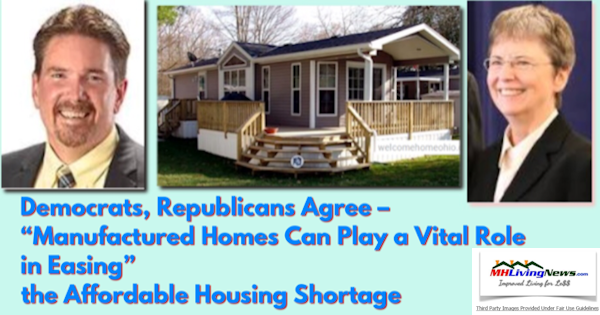
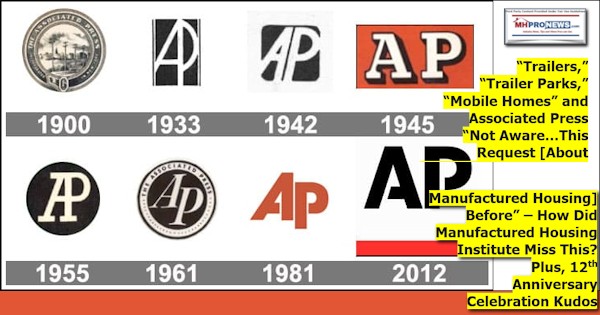
 manufacturedhomelivingnews.com Manufactured Home Living News
manufacturedhomelivingnews.com Manufactured Home Living News








